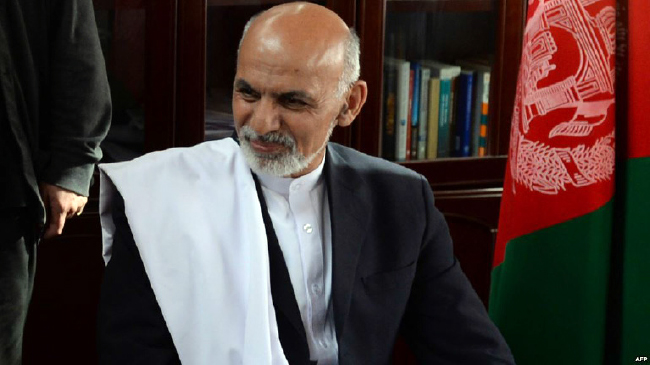According to law Men are equal irrespective of their race, color or position. And law, unlike moral values, is binding and whoever is entangled in crime s/he will have to be prosecuted. It is believed that legal principles originate from ethical code and/or religious values in a community – so as not to be against social faith. In Afghanistan, moreover, religious values weighs heavily in state law, as it is said in article 3 of Afghanistan Constitution, “No law shall contravene the tenets and provisions of the holy religion of Islam in Afghanistan.” Similarly, a number of high-ranking officials, including the president, take the oath of office, after being assigned a political position, to do their utmost while fulfilling their duties.
However, the social practices are not always in accordance with law. Men naturally pursue their pleasures and interests at the cost of others’ rights. In other words, one’s dignity and basic rights – i.e. the rights to life, liberty and property – are violated to a great extent in daily life. The ugly headlines are hackneyed on national newspapers. A man is slain on the ground of his race or creed, a woman is stoned to death in a desert court, a girl suffers violence and honor-killing for being born female, a child is slaughtered like a sheep without an iota of mercy, etc.
Additionally, the high-ranking individuals are considered beyond law and hardly prosecuted in social life – which is in conflict with the country’s Constitution. The executive branch fails to implement the law properly via bringing the perpetrators to justice. Although, government has the duty to “execute the provisions of this Constitution, other laws, as well as the final decisions of the courts, maintain public law and order and eliminate every kind of administrative corruption….” But when corruption is committed by a high-profile person, s/he barely stands trial. Correspondingly, a minister is frequently impeached or incapacitated in case of not fulfilling his/her official responsibilities.
Unsurprisingly, the law is strict concerning ordinary citizens. For instance, when one is involved in a case, he is supposed to pump money into courts if he wants to win or just to get rid – especially when the case passes all the three phases: the primary, appeal and supreme courts.
The US-based non-profit association World Justice Project (WJP) released that Afghanistan is ranked the second-worst country in rule of law after Venezuela from 102 countries.
Addressing a conference, General Anoyled, the head of the transparency unit for the NATO-led Resolute Support (RS) mission in Afghanistan said last week that corruption is a serious concern for the Afghan government and urged the Interior Minister to launch a serious campaign to eradicate the problem in order to secure continued international aid for Afghanistan. “Transparency and accountability should be increased in the ministry in order to witness the continuation of the international community’s support to Afghanistan,” he is cited as saying. Moreover, a committee of evaluation and assessment in the fight against corruption determined that there is still the possibility of corruption within the Ministry of Interior (MoI) – particularly with regards to contracts involving uniforms, food and vehicles.
There are also reports that Afghanistan is world’s third largest opium producer after Myanmar and Laos and produces some 90 per cent of world’s illicit opiates. An Afghan official said that Mafia and terrorist groups are annually receiving $70 billion from narcotics in this country and Pakistani Taliban, who carry out acts of terror in Afghanistan and Pakistan, are the beneficiary of $2 billion. So, the law is not enforced regarding the perpetrators of major crimes and some are excused under the circumstances.
Since the concept of democracy is often expressed in terms of “thin” and “thick” definitions, it is synonymous with popular sovereignty or majority rule: in some forms, democracy can be exercised directly by the people; in large cities, it is by the people through their elected agents. Or in the memorable phrase of Abraham Lincoln, democracy is government “of the people, by the people, and for the people.” Therefore, what we know as democracy in its ideal form generally also includes governance by rule of law and the protection of civil rights and public liberties.
Democracy rests upon the principles of majority rule and individual rights. Democracies guard against all-powerful central governments and decentralize government to regional and local levels, understanding that all levels of government must be as accessible and responsive to the people as possible.
Democracies understand that one of their prime functions is to protect such basic human rights as freedom of speech and religion; the right to equal protection under law; and the opportunity to organize and participate fully in political, economic and cultural life of society.
To extend the life of nascent democracy in Afghanistan and alleviate the current challenges, the government has to enforce the law strictly and prefer no citizens to others – regardless of their social and political positions. The state must “attain a prosperous life and sound living environment for all inhabitants of this land; and eventually, regain Afghanistan’s appropriate place in the international family”.
It is believed that the legislative branch is perfect enough to address the society’s problems; however, the main trouble is that the three divisions do not go parallel to one another. For instance, when one is considered criminal in the eye of law, the jury will interpret the law otherwise or the executive branch will overlook the issue – it is a matter of great concern for the public.

